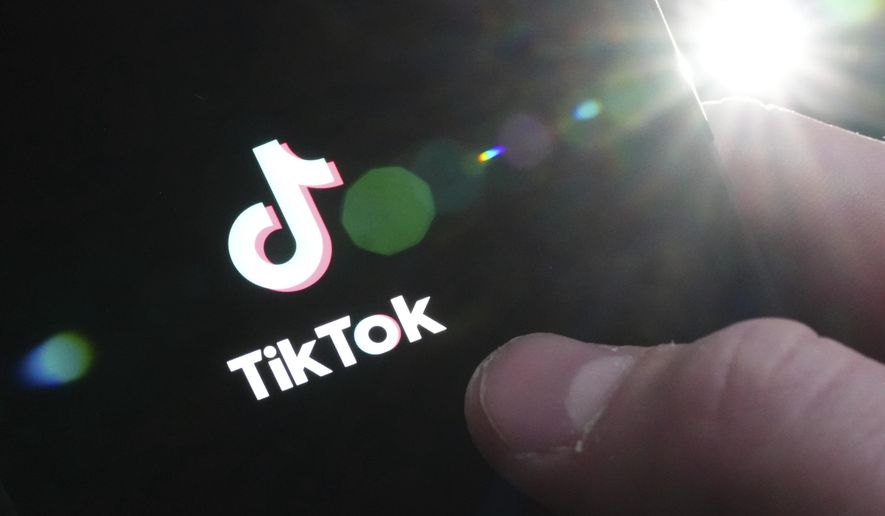The Democratic chairman of the Senate Select Committee on Intelligence is leading a new push to crack down on foreign technology, proposing new legislation Tuesday to empower the Biden administration to enact broader blockades of platforms such as the China-founded TikTok.
Sen. Mark Warner, Virginia Democrat, is leading a bipartisan coalition of a dozen senators who authored a bill directing the Commerce Department to create a process for reviewing and stopping national security threats posed by tech products with connections to a foreign adversary.
Mr. Warner said TikTok is not the only foreign technology product that concerns him and the federal government’s tools to address such products are limited.
“We lack, at this moment in time, a holistic interagency, whole-of-government approach,” Mr. Warner told reporters. “Instead of playing Whack-A-Mole on Huawei one day, ZTE the next, Kaspersky, TikTok, we need a more comprehensive approach to evaluating and mitigating these threats posed by these foreign technologies from these adversarial nations.”
The Biden administration has maintained a national security review of TikTok started under the Trump administration, which is overseen by the Treasury Department-led Committee on Foreign Investment in the United States.
President Biden has signed into law restrictions that remove TikTok from federal government devices but he has made no public determination about a broader ban.
The 12 senators’ proposed Restricting the Emergence of Security Threats that Risk Information and Communications Technology (RESTRICT) Act directs the Commerce Department to lead reviews of tech such as TikTok and make determinations about whether they pose any risk within 180 days, according to the draft legislation.
If the Commerce Department discovers a risk and pursues a ban on a tech product, the bill also directs the department to work with the intelligence community to declassify information explaining the federal government’s determination.
Six Democrats and six Republicans authored the new legislation with TikTok in mind, and the majority of participating lawmakers hail from either the intelligence committee or the Senate Commerce Committee, such as Sen. John Thune, South Dakota Republican.
Mr. Thune said the Commerce Department’s review established by the bill could lead to a broader ban on TikTok.
“The Chinese Communist Party has proven over the last few years that it is willing to lie about just about everything, that likely won’t end with TikTok, which is why it’s important to establish a holistic and methodical approach to the challenges that are posed by technology from foreign adversaries,” Mr. Thune told reporters.
Democratic senators’ openness for the Biden administration to crack down on TikTok stands in stark contrast to the actions of their colleagues in the House.
The House Foreign Affairs Committee advanced legislation without any Democratic support to empower the Biden administration to ban TikTok nationwide.
TikTok spokesperson Brooke Oberwetter said Tuesday that banning TikTok would censor millions of Americans and block the export of American culture to people outside U.S. borders.
“The Biden administration does not need additional authority from Congress to address national security concerns about TikTok: it can approve the deal negotiated with CFIUS over two years that it has spent the last six months reviewing,” Ms. Oberwetter said in a statement.
The Biden administration has not reached a formal conclusion to its TikTok probe but the administration does not appear uncomfortable with the China-founded tech platform.
For example, acting National Cyber Director Kemba Walden appeared on the main stage of an internet policy conference in Washington on Monday, immediately ahead of a TikTok executive.
Lawmakers and state officials have taken a much more antagonistic approach.
More than 20 states have enacted restrictions on TikTok’s function on state officials’ devices, and Congress passed similar restrictions last year.
The Commerce Department did not immediately respond to a request for comment Tuesday.
TikTok will have another chance to defend its operations at a hearing later this month when TikTok CEO Shou Zi Chew is set to appear at a House Energy and Commerce Committee hearing.
• This article was based in part on wire service reports.
• Ryan Lovelace can be reached at rlovelace@washingtontimes.com.




Please read our comment policy before commenting.